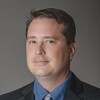The pall of the COVID-19 pandemic has covered the world and colored everything we do. Hit especially hard are in-person gatherings, such as the conferences for which SPE is so well known. Although large conferences now present a risk to attendees, their value—especially that surrounding health, safety, and the environment (HSE)—is perhaps greater than ever. That is why SPE has worked hard to ensure that the flow of information does not stop. Technology has provided an answer, and SPE recently held its first virtual HSE conference.
The 2020 SPE International Conference and Exhibition on Health, Safety, Environment, and Sustainability initially was planned to be held in Bogota, Colombia. The planning had taken nearly 2 years. The pandemic forced a last-minute change to virtual, and, although no one sat together for conference dinners or milled about reception areas searching for the next engaging conversation, attendees did get together and engaging conversations still happened.
“The first highlight is that we held a conference at all,” said Conference General Chairperson Carlos Sarmiento in his closing remarks. “Truly, hats off for all the great qualities that ensured COVID did not daunt the organizers, who barely missed a beat.” Sarmiento pointed out that 28 technical session presented more than 100 papers. This was in addition to six panel sessions and six plenary sessions.
As many are wont to do in times of great distress, much of the conference focused on the future—the future of sustainability, the future of leadership, and the future of the HSE discipline itself. And one key idea from the conference was that the future is arriving quicker these days. This was evident in the thread of shifting leadership that wove through the conference.
During the Leadership and Engagement plenary session, Jennifer Guidry, the vice president for global health, safety, environment, and ESG for Precision Drilling, said, “The really interesting thing is the current state of our world has highlighted the urgency for the rapid emergence of adaptable and sustainable leadership. I intentionally chose the word ‘highlighted’ because this was a shift that was already in progress.”
Sarmiento pointed out that the topic of leadership was key to several plenary, panel, and technical sessions, praising “leadership that is mindful, that generates trust, that is generative and produces safe working conditions and operations that are as conscious of their impacts as their results, individuals who value humility yet strive for excellence.”
The worldwide aspect of the industry has meant that communication across vast distances has always been important. Now, the pandemic has brought a new dimension to that importance. Many discussions at the conference revolved around the rapid acceptance of advancing distance communication, the technology used to carry the conference in the first place.
“We thought our engagement ambitions might be sacrificed in the virtual context,” Sarmiento said. “But, no. Actually, I’m wondering if we didn’t generate more engagement thanks to the technology of the virtual platform. … It seems to me the virtual context enabled a level of feistiness in our exchanges that we don’t always see. There was professional respect and trust, there was willingness to disagree, there was the humility to change one’s view. That’s engaging.”
The ability to boost distance communication quickly has served the oil and gas industry well during a pandemic that hit the world hard and caught it mostly unprepared. So, too, has the industry’s past of handling risk.
David Payne, vice president for health, environment, and safety for Chevron, said, “One of the things that I think has served us really well and has really served the international HSE community is our ability to use the tools and terminology we’ve used for safety for decades to apply to the COVID-19 crisis. You talk in terms of safeguards. You talk in terms of risk management. … By talking in terms our employees are used to hearing, it gives them some comfort as we go through this process.”
Program Committee cochairperson Johana Dunlop said that base of HSE and sustainability makes her feel fortunate to be working in the oil and gas industry during the current pandemic. “That’s where my sense of security comes from,” she said, “from the amazing medical and health practitioners working for the industry, the very early recognition that we were facing a pandemic, the quality of the advice, the constant vigilance and willingness to learn and adapt.” She added that those qualities of the industry make her, “and by extension my family, feel more secure and knowledgeable.”
No matter how prepared one may be, however, more can always be done. “We, as an industry, are good at managing risks,” said Olav Skar, director of health, safety, security, and wells with the International Association of Oil and Gas Producers. “We have systems and tools, and we are used to implementing them. For COVID-19, though, the risk mitigations available to us are weak. They’re not well understood and often rely on individual behaviors.”
As the industry strives to be safer and more sustainable, to adapt to new dangers and challenges, the international HSE conference reminded that an army of professionals has been and continues to work toward that goal. “If there’s one thing this pandemic has taught us,” said Terri Willis, vice president for global quality and HSE at John Crane, “it is the value of the [HSE] function. So, be proud of the work you have done to manage your organizations through this crisis.”


